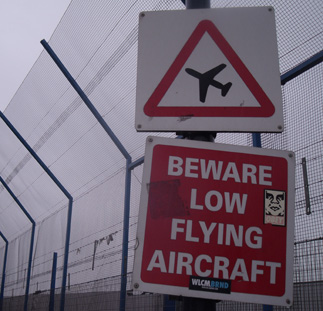Eight projects have been awarded £1.8m in government funding to develop products with potential to aid airport security while speeding up the screening process for passengers. They are:
Durham University – machine learning algorithms for x-ray;
University College London – application of machine learning to recognise anomalous items and groups of objects in bags;
SEADM (with Smiths Detection), based in Madrid – a portable system for screening for explosives in cargo;
University College London – electromagnetic imaging for baggage and cargo;
Sequestim, based in Cardiff – walk-through system for passenger screening;
Scanna MSc, based in London – step-on shoe scanner to detect explosives and weapons;
Security Screening Technologies, based in Derbyshire – footwear screening; and
University of Cambridge – changing the focus of training for airport security personnel.
For example, in Wales, Sequestim has designed an alternative walk-through people screening system; with the aim of passengers not having to remove outer clothing. he natural radiation from their bodies is measured and turned in to an image. Computer learning can be applied to detect the presence of any threat the passenger may be carrying.
And Security Screening Technologies uses imaging to scan shoes for explosive materials. A step-on shoe scanner being developed by the company can form high-contrast images of footwear which can then be analysed by computers that have been ‘taught’ to recognise threats. Any shoes flagged as having areas of concern could then undergo secondary screening. It might mean that passengers would no longer need to remove their shoes before going through airport central search; hence less queuing.
Aviation Minister Baroness Sugg said: “This latest £1.8m of funding invests in innovative projects that will ensure we are continuing to capitalise on pioneering research. The aim is to have a safer and smoother travel experience for air passengers. The safety of people travelling on all modes of transport is our top priority and the Future Aviation Security Solutions [FASS] programme is just one example of the huge importance we place on the security of passengers. We have a proud history of the early adoption and use of cutting edge technology and this programme is helping to ensure we continue to lead the way in airport security.”
Under the joint Department for Transport and Home Office scheme, each project will have 12 months to develop a prototype that could be trialled at airports.
A FASS ‘finding explosives hidden in electrical items‘ event ran in London on November 28.
Picture by Mark Rowe; outside London City Airport perimeter










